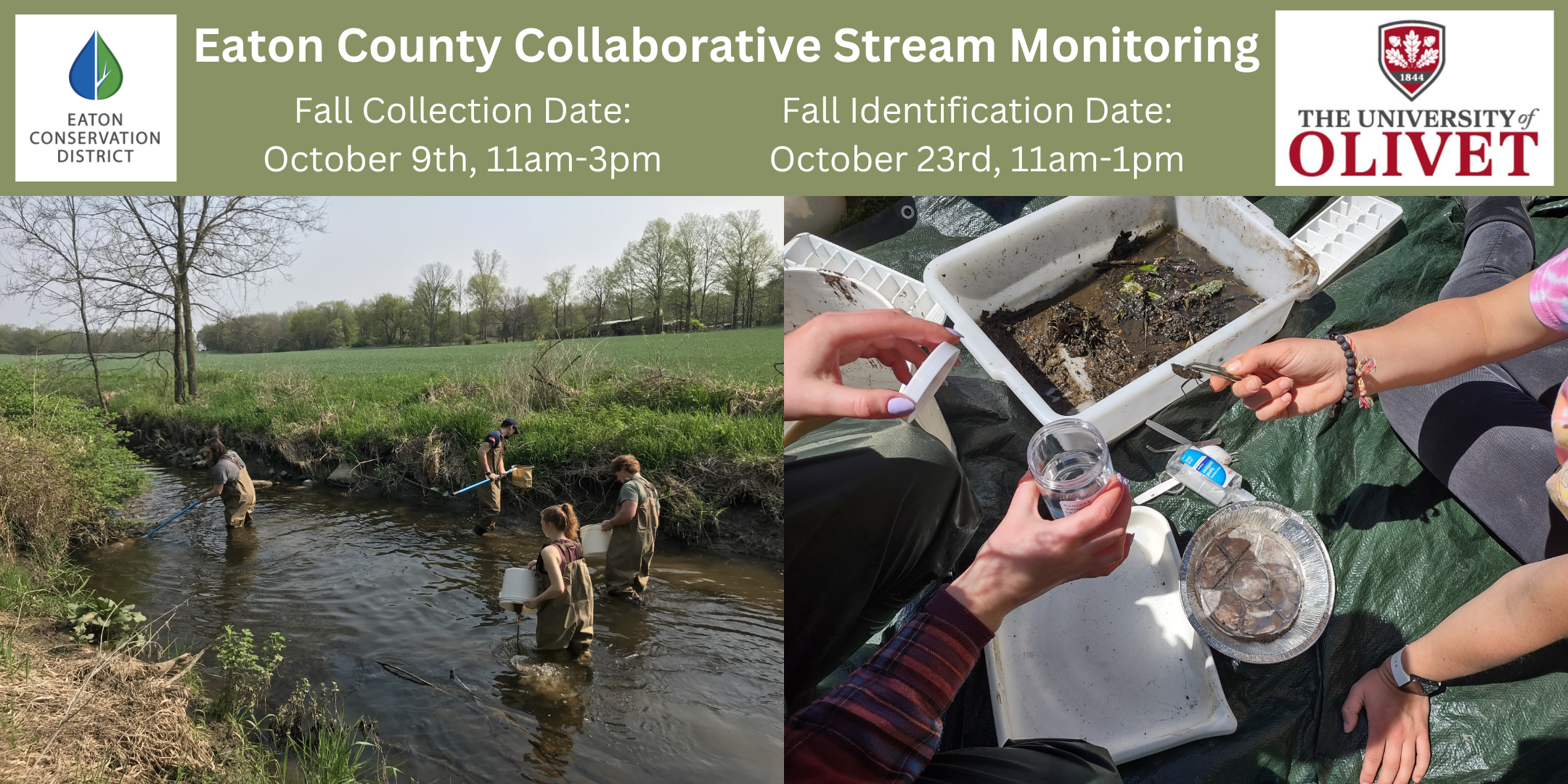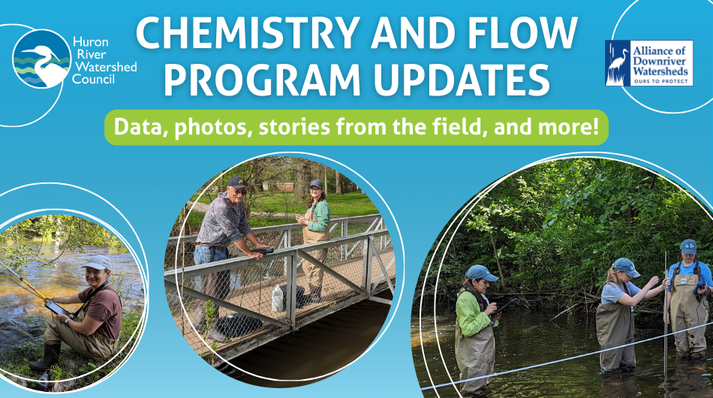
- This event has passed.
2024 ECCSMP Fall Stream Monitoring
October 9, 2024 @ 11:00 am - 3:00 pm
Free
Learn what it takes to be a community scientist at this free event! You will help to collect aquatic insects to monitor the water quality of Eaton County streams. Volunteers will meet at the Eaton Conservation District basement conference room to review stream monitoring protocols before going out into the field. All equipment will be provided, though volunteers should dress for the weather and bring a water bottle.
Register HERE for our fall stream monitoring collection event to be held Wednesday, October 9th from 11am-3pm.
Contact Val Reisen at val.reisen@macd.org or 517-588-6302 for more information.
The Eaton County Collaborative Stream Monitoring Program was established through Michigan Clean Water Corps (MiCorps) grants and operates in partnership between The University of Olivet and Eaton Conservation District. The monitoring program consists of sites in Eaton County within the Upper Thornapple River watershed. The design of the monitoring program focuses on cooperative learning and building relationships between volunteer community scientists and students. Through this collaborative structure, the program is designed for longevity in collecting macroinvertebrate and habitat data throughout the county each fall and spring, and aims to achieve the following outcomes:
- Provide new and continuous macroinvertebrate collection and habitat assessment data that will assist in assessing the success of any restoration projects and updating the watershed management plan;
- Educate and collaboratively engage Eaton County residents, students, and other stakeholders in monitoring, upholding quality, and protecting water resources; and
- Identify or verify problem areas where degradation has occurred and where future remediation efforts or best management practices can be implemented.
This program is funded through MiCorps Stream Monitoring Grants. MiCorps is administered for the Department of Environment, Great Lakes and Energy by Michigan State University, in partnership with the Michigan Lakes and Streams Association and Huron River Watershed Council.

